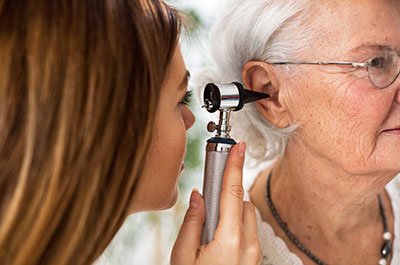Vaping is becoming an increasingly popular pastime for adults and kids alike. Originally designed to help adults quit smoking, e-cigarettes have become a common addiction in their own right. And the fallout can be catastrophic.
According to the Centers for Disease Control and Prevention (CDC), vaping-related lung disease is on the rise. As reports of young people dying from vaping-related complications continue to mount, state governments — including Michigan’s — are promising to ban the sale of flavored e-cigarettes.
What You Need To Know About Vaping
Since the science regarding vaping is rapidly evolving, we asked Daniel Ouellette, M.D., a pulmonary specialist at Henry Ford Health, to answer your most pressing questions about the vaping trend:
Q: What is vaping?
Dr. Ouellette: Vaping is essentially inhaling an aerosol vapor — usually containing nicotine —produced by an e-cigarette. The devices that produce the vapor consist of three distinct parts:
- A reservoir: The reservoir acts as a small vessel to hold the liquid for vaping.
- A heating element: The device has to heat the liquid to produce a vapor.
- A battery: The device requires a battery to power the heating element.
Most vaping devices don’t look like traditional cigarettes. In fact, people commonly mistake them for batteries or flash drives.
Q: What’s in the vapor?
Dr. Ouellette: We’re not entirely sure. Many of these products are manufactured in other countries, so we have very little insight about the contents, but there are a variety of potentially toxic chemicals in each pod. Everything that’s in the liquid is vaporized and inhaled. In addition to nicotine, this can include flavoring agents like watermelon, mango and cappuccino. Some people also choose to add their own ingredients to the reservoir, including cannabinoid oil (CBD) and tetrahydrocannabinol (THC), the mind-altering compound in marijuana.
Q: Can you explain some of the health effects of vaping?
Dr. Ouellette: When you vape, you’re essentially inhaling toxins and delivering them straight to the lungs. We’re just beginning to scratch the surface in terms of how this impacts the lungs and other organs. A few of the obvious health consequences of vaping:
- Nicotine addiction: Each vaping cartridge has about the same amount of nicotine as an entire pack of cigarettes. If you go through one reservoir a day, you’re getting a lot of nicotine — and nicotine is a highly addictive substance. To make matters more complicated, the adolescent brain is much more vulnerable to these substances than a mature brain. So people who begin vaping in their late teens and early 20s are more likely to struggle with nicotine addiction.
- Exposure to toxins: Inhaling vaporized nicotine, solvents and other chemicals is highly toxic for all of your body’s organs and tissues. And while the flavoring agents in some of these pods are approved by the federal government as food additives, they are not approved as a vapor for inhaling.
- Respiratory problems: Preliminary studies suggest vaping may lead to respiratory concerns, including persistent cough and bronchitis. There’s also evidence to suggest that vaping fluid can permanently damage the lungs.
Q: What are doctors seeing in terms of vaping-related death and disease?
Dr. Ouellette: As of October 1, 2019, well over 1,000 Americans have suffered lung injuries and vaping-related illness and nearly 20 people have died as a result of using e-cigarettes, according to the CDC. The latest findings seem to suggest that THC may play a role in the outbreak.
Q: Is there such a thing as secondhand vaping?
Dr. Ouellette: Yes. It’s very similar to secondhand smoking. If you’re near someone who is inhaling vapor from an e-cigarette, you are exposed to the same toxins. We don’t yet understand the short-term and long-term effects of these exposures, but we do know there are effects on bystanders.
Getting Vaping Under Control
Although e-cigarettes are made for adults, up to one in five high school seniors have used a vaping device. While a number of states, including Michigan, are working to ban flavored e-cigarettes, regulations at the federal level may take several years to phase in.
“Some experts believe that there is a role for e-cigarettes in smoking cessation,” says Dr. Ouellette. “That’s one reason legislation is targeting products with flavorings since they appeal more to kids than to smokers who are trying to quit.”
While researchers and policymakers determine the next best steps, it’s important to remember that the only substance that should go in your lungs is air. Vaping, flavored or not, is highly addictive and may come with serious health risks.
To find a doctor or learn more about smoking and tobacco cessation programs, visit henryford.com or call 1-800-HENRYFORD (436-7936)
Dr. Daniel Ouellette specializes in pulmonary disease and critical care medicine and sees patients at Henry Ford Hospital in Detroit and at Henry Ford Medical Center – Sterling Heights.



